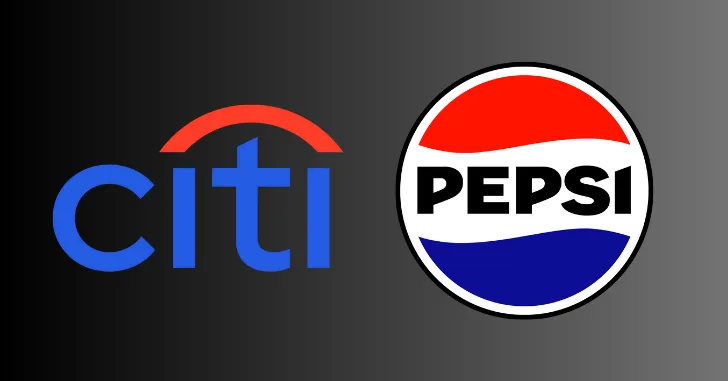PepsiCo and Citigroup’s recent decisions to pull back on their Diversity, Equity, and Inclusion (DEI) initiatives mark a significant shift in corporate America. As DEI programs face increasing political and legal scrutiny, these moves could have wide-ranging economic consequences, impacting everything from workforce dynamics to investor confidence.
This article explores the potential economic outcomes of these strategic rollbacks and how they may influence corporate performance, market competitiveness, and long-term growth.
The Rise and Reassessment of DEI Policies
Over the past decade, DEI policies gained traction as businesses recognized the value of diverse perspectives in driving innovation and capturing broader market opportunities. Studies repeatedly linked diverse workforces to higher profitability, better decision-making, and improved customer insights.
However, with growing political pushback and evolving legal frameworks, many corporations are rethinking their DEI commitments. The recent moves by PepsiCo and Citigroup signal a pivotal moment, where the balance between social responsibility and shareholder interests is being recalibrated.
What Changes Are PepsiCo and Citigroup Making?
PepsiCo’s Adjustments
PepsiCo has announced the conclusion of its DEI workforce representation goals, with a strategic shift towards a new “Inclusion for Growth” plan. This updated approach emphasizes leadership development and associate engagement over traditional DEI targets.
Key changes include:
- Transitioning the chief DEI officer’s role to focus on internal leadership and engagement.
- Ceasing participation in single-demographic category surveys.
- Broadening opportunities for small businesses within its supplier network.
PepsiCo’s shift coincides with the end of its previous five-year DEI strategy, indicating a move toward broader, potentially more economically driven inclusion initiatives. (Reuters)
Citigroup’s Changes
Citigroup, one of the nation’s largest financial institutions, is making even more substantial adjustments:
- Eliminating aspirational representation goals except where legally required.
- Discontinuing requirements for diverse candidate slates and interview panels.
- Renaming its “Diversity, Equity, and Inclusion and Talent Management” division to “Talent Management and Engagement.”
Citigroup CEO Jane Fraser communicated these changes to staff, citing the need to adapt to the shifting political and legal environment surrounding DEI. (Business Insider)
Economic Implications of Scaling Back DEI Policies
Talent Acquisition and Workforce Productivity
Potential Risks:
- Narrower Talent Pools: By deprioritizing DEI, companies risk limiting access to diverse talent, which could stifle innovation.
- Employee Morale: A reduced emphasis on inclusion may lead to decreased engagement and higher turnover, impacting productivity.
Potential Benefits:
- Cost Savings: Streamlined hiring processes could reduce recruitment expenses.
- Performance-Based Focus: Shifting emphasis from diversity targets to merit-based hiring could boost short-term productivity.
However, the long-term economic cost of reduced innovation due to a less diverse workforce could outweigh these short-term gains.
Investor Confidence and Market Performance
Investors are increasingly focused on Environmental, Social, and Governance (ESG) metrics. Companies scaling back DEI risk alienating ESG-focused funds, which could affect stock performance.
Potential Outcomes:
- Positive for Cost-Conscious Investors: Some investors may see these moves as cost-cutting measures that improve margins.
- Negative for ESG Investors: Those prioritizing socially responsible investing may divest, potentially driving down share prices.
Given that many investors now view DEI as a marker of strong corporate governance, these rollbacks could introduce long-term volatility in market valuation.
Regulatory and Legal Considerations
The political climate has played a significant role in these changes. Under former President Donald Trump’s administration, federal directives discouraged DEI initiatives. With a similar political environment emerging, companies may be aligning their strategies accordingly.
Key Considerations:
- Reduced Legal Risk: Scaling back DEI goals could help companies avoid lawsuits related to affirmative action and quota-based hiring.
- Exposure to Other Risks: Companies could face discrimination claims if employees believe diversity concerns are being neglected.
Balancing these risks will be crucial to determining the economic success of these policy adjustments.
Broader Economic Impact on Corporate America
PepsiCo and Citigroup are not alone. General Motors, Boeing, and Disney have also reportedly scaled back DEI initiatives (New York Post).
Potential Industry-Wide Implications:
- Market Competitiveness: Companies that deprioritize DEI may lose ground in diverse global markets where inclusion remains a key expectation.
- Innovation Ecosystem: Reduced diversity could hamper innovation pipelines, slowing economic growth at the industry level.
In the long term, the U.S. market’s competitiveness could suffer, as global competitors continue to embrace DEI to drive innovation and market reach.
Expert Opinions and Market Forecasts
Analysts remain divided on the long-term economic impact of these changes:
- Optimistic View: Some believe that focusing on core business functions and merit-based hiring will enhance profitability.
- Pessimistic View: Others argue that sidelining DEI could harm corporate reputations, reduce customer loyalty, and limit market potential.
As more corporations reevaluate their DEI commitments, investors, consumers, and employees will play critical roles in shaping the economic outcomes of these strategic shifts.
More DEI Rollbacks
PepsiCo and Citigroup’s decision to roll back DEI policies reflects a broader shift in corporate America, where economic imperatives and political pressures are reshaping business strategies.
While these moves may yield short-term economic benefits such as cost savings and streamlined operations, they pose long-term risks related to innovation, market competitiveness, and investor confidence.
The ultimate question remains:
Will scaling back DEI initiatives strengthen corporate performance, or will it erode the foundations of sustainable growth?






